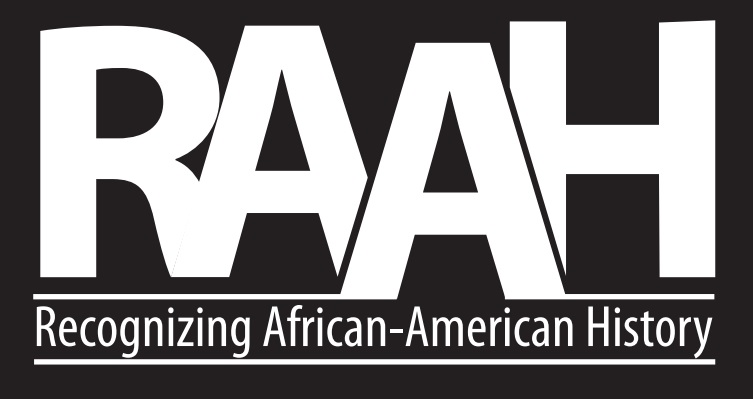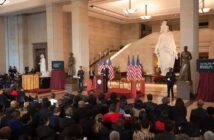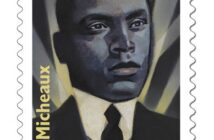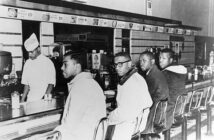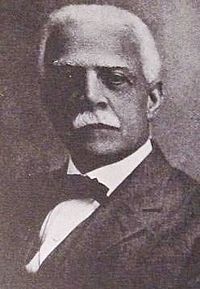
Archibald Henry Grimké (August 17, 1849 – February 25, 1930) was an American lawyer, intellectual, journalist, diplomat and community leader in the 19th and early 20th centuries. A graduate of freedmen’s schools, Lincoln University and Harvard Law School, he later was appointed as American Consul to the Dominican Republic from 1894 to 1898. He was an activist for rights for blacks, working in Boston and Washington, DC. He was a national vice-president of the National Association for the Advancement of Colored People (NAACP), as well as president of its Washington, DC branch.
After becoming a widower, Grimké moved with Weston to his plantation outside Charleston; they lived together without social oversight. He was a father to his sons, teaching them and Nancy to read and write. In this period, as South Carolina discouraged manumissions by requiring slaveholders to petition the legislature for each case, it was nearly impossible and a public process to gain manumissions. Grimke never freed Weston or their children, and was simply discreet about them.
In 1852 as he was dying, Grimké tried to protect his second family by willing Nancy, who was pregnant with their third child, and their two sons Archibald and Francis to his son and heir Montague Grimké, by his first wife. He directed that they “be treated as members of the family.”
Henry’s sister Eliza, executor of his will, brought the family to Charleston and allowed them to live as if they were free, but she did not aid them financially. Nancy Weston took in laundry and did other work; when the boys were old enough, they attended a public school with free blacks. In 1860 Montague “claimed them as slaves,” bringing the boys into his home as servants. Later he hired out both Archibald and Francis. After Francis rebelled, Montague Grimké sold him. Archibald ran away and hid for two years with relatives until after the end of the Civil War. Montague never provided well for his half-brothers or for their mother.
After the American Civil War ended, the three Grimké boys attended freedmen’s schools, where their talents were recognized by the teachers. They gained support to send Archibald and Francis to the North. They studied at Lincoln University in Pennsylvania, established for the education of blacks.
